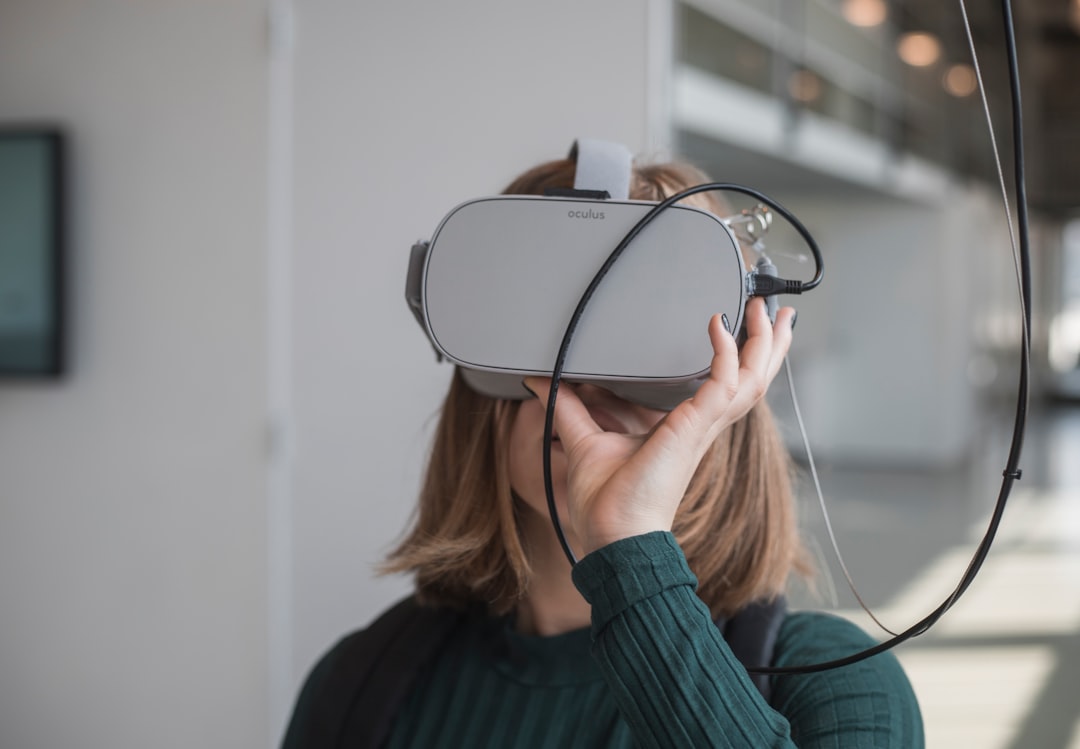The hotel and tourism industries have had a difficult time sustaining since the Covid-19 pandemic breakout two years ago. The newest Omicron strain struck just as the tourist sector was beginning to recover from the pandemic’s grip, making the future prospects as bleak as possible. As a result, firms in this sector are adopting innovative and creative strategies to attract travelers and visitors from all over the world to minimize losses. Businesses are making visitor health and safety a priority in the new normal.
According to a recent analysis published with Travel + Leisure by the World Travel & Tourism Council (WTTC, 2021), travelers are eager to go out and explore. Therefore traveling in 2022 may become even more popular than before the pandemic.
When it comes to holidays, domestic travel has “significantly” surpassed global tourist growth and is likely to continue to do so in 2022. In comparison to 2020, the travel industry in the United States is forecasting a 35.6 percent increase this year. According to the analysis prepared in collaboration with Oxford Economics, the U.S. travel sector is predicted to rise by another 28.4 percent in 2023 (Nelson, 2022).
From our partners:
In this article, we collected a list of 9 major trends and opportunities in the digitalization of the travel and tourism sector in 2022.

1. Digitized Hospitality Services
As travel demand increases, tourists also have high expectations of the services provided. Hotels must live up to this expectation by, for example, opting to invest in cutting-edge digital technologies.
Smart hotels mainly aim to provide customers with a new and unique experience. Signing up to their mobile apps, guests can regulate the temperature of their room, unlock their door, pay for their stay, and more. Marriott, a well-established hotel brand, has announced a cooperation with Samsung and Legrand to create an intelligent room for its properties. Guests will be able to attend a Tai Chi lesson with an interactive mirror, personalize the cleaning service, order food and beverages, and even flush the toilet using voice commands via a mobile app.
This will enable hotels to increase their productivity and immediately learn from consumer behavior, which is proven to be beneficial. As big data becomes more important in the tourist business, certain hotels are undergoing digital transformations to fully utilize it.

2. Using Location Intelligence to Attract and Retain Loyal Guests
Location intelligence gives deeper insight into hotel guests’ behavior using information about the places they go and the events they attend both on- and off-stay. In a post-pandemic world, it’s no longer enough to provide exceptional service at an affordable price; customers now want individualized experiences and services that anticipate their needs and interests.
To enable such personalization, hotels must have a thorough understanding of their visitors as well as the ability to act on the information gathered from that understanding. This need additional real-time data, such as location intelligence, to create deeper insights.
Quality service throughout the guest experience builds customer loyalty. This procedure begins with hospitality services and booking, continues during the hotel stay, and concludes only after check-out. Location intelligence helps hotels and travel sector to provide this experience by first assisting potential guests in discovering and selecting your location, and then providing that visitor with exactly what they’re searching for once they arrive.
Gaining customer loyalty necessitates not just knowledge of your present client base, but also knowledge of future consumers who are considering your competition. Hotels have vast amounts of data on their own operations and customers, but little insight into the operations or client base of their competitors. These kind of information are provided by location intelligence, which allows you to benchmark against competing brand, market, or specific property.
3. The Boom in Staycation and Workcation
The way we work has changed dramatically as a result of the crisis. People experiment with their work environment not only at home but even in neighborhoods. For sure, working from different places helps avoid monotony and helps stay concentrated and motivated. Workation, which allows users to work from anywhere and with all of the essential equipment, is becoming more popular.
Staycations are becoming more popular as a convenient method to unwind without having to travel far. It’s a fantastic method to enjoy happy vacations while also helping one’s wallet and the environment. In fact, staying close to home minimizes the budget for housing (15 percent of average household vacation expenditures) and transportation. There are no burdened or work-load days; you do what you please (with leisure activities), and there is no rush to go from one activity to the next just to be active.
For example business travelers and conferences have profoundly influenced hospitality sector with Hotels like Widder Hotels. Prior to Covid-19, corporate travelers made up half of all Preferred Hotels guests, while leisure guests made up between 20% and 30%, but that has changed today. Professionals are seeking new ways to spend leisure time with family and friends as the lines between work and play fade. Due of people’s time constraints, spontaneous staycations in their home cities with leisure vacations are becoming increasingly popular.

4. Virtual Reality’s Emergence in the Travel Industry
In the tourism sector, virtual reality is becoming more prevalent. Guests may now take a glance at a place and get a taste of their future vacation, whether it’s a destination or a hotel. This option is particularly appealing to travelers who wish to give themselves an exclusive pre-trip experience before departing for a faraway location.
The financial, virtual, and physical worlds are all becoming increasingly connected. At the push of a button, the devices we use to control our lives, allow us access to nearly anything we want. This has also affected the crypto ecosystem. NFTs, blockchain games, and crypto payments are no longer exclusive to crypto enthusiasts. As part of a growing metaverse, they’re now all readily available.

Another example is the emergence of Metaverse today. The metaverse is a vision for an online, 3D, virtual realm that connects individuals from all layers of society. It would link many platforms, similar to how the internet connects several websites using a single browser. The notion was developed in Neal Stephenson’s science-fiction novel Snow Crash. While the concept of a metaverse was originally considered science fiction, it now appears that it may become a reality in the future.
Augmented reality will power the metaverse, with each user managing a character or avatar. Take a mixed reality meeting in your virtual workplace with an Oculus VR headset, complete work and relax in a blockchain-based game, and then manage your crypto portfolio and money all from within the metaverse.
5. Emergence of Artificial Intelligence and Chatbots
Chatbots driven by artificial intelligence are a costly but smart investment in travel technology. They can give consumers real-time responses to their inquiries regardless of the time of request since they are available 24 hours a day, 7 days a week. Chatbots are frequently employed to answer simple, closed inquiries, but because of developments in AI technology, they will soon be able to answer even the most complex questions.
To improve the customer experience, the travel sector is beginning to harness a lot of data. It is obvious that the more information a hotel or airline has about its consumers, the better services it can provide.

6. Enhancing Omnichannel Communication
With the implementation of technology improvements, basic operations like booking a hotel stay are now just a few steps away. Similarly, hotels adopt CRM solutions to provide more effective automated hyper customized guest communication via popular social media channels, websites, email, and others. Guest engagement has been shown to rise by 97 percent when using omni-communication.
7. Using Dynamic Travel and Tourism Packages Online
In the digital ticketing market, dynamic packages are a real game-changer. Let’s assume you’re planning an event in the city center, but you want to reach out to a larger audience. You may consider selling tickets for your events and activities across your region’s or country’s complete public transportation network included.
Dynamic packages, on the other hand, aren’t only about tickets. If you operate a theatre or a music hall, for example, you may offer your guests the option of purchasing tickets together with snacks, public transportation or a parking ticket. If you run a travel event show, you may combine admission with a VIP excess to special one-on-one travel consultants for a double dose of excitement. These packages come in very effective while also upselling other facilities like accommodation, travel, and excursion tickets in the hospitality and tourism industry.

8. Offering All-Inclusive Tourism Passes
Today, many tourism, hotel, and destination companies offer an all-inclusive pass to their guests and tourists. It will enable guests to enjoy the greatest possible experience in your city, as in the case of Lausanne, Switzerland’s Olympic capital, which pioneered an all-inclusive ticket that allows users to use a single QR code to get entry to a variety of activities, cultural sites, and public transit.
The tourist organization behind this City Pass, Lausanne Tourism, is a pioneer in this industry. With the goal of improving the city’s appeal to visitors, the Vaud tourism office offers a variety of City Pass choices based on the duration of stay or the number of people in the group.
9. Using the TikTok App
For a long time, social networking has been a big issue, yet tourism and attraction suppliers continue to underestimate its potential. Now is the time to stop ignoring it and start understanding where your visitors are: TikTok. In 2020 and 2021, Covid’s burgeoning social media channel has surpassed all others as the most downloaded. It also has the highest engaged audience (14.5 percent compared. 2.54% on Facebook). It is a valuable asset in assisting you in reaching a broader audience.

Furthermore, with TikTok, collaborating with influencers has never been more important. Unlike Instagram and Facebook, TikTok’s reach is determined by the quality of the material you upload, not by the number of followers you have. The material of anybody can then go viral in an instant! Influencers are often inexpensive – therefore, they can create content for your business with a special fee which eventually promotes your products and services. Therefore many business within the hotel and tourism industry are now using Influencer marketing strategy to promote their business locally as international tourism is still uncertain.
10. Personalisation
Personalisation is another travel trend that has seen a huge growth in recent years, and one that we believe will continue to grow in 2022. The travel sector is highly experience-based, and research found that 87% of consumers are more likely to book their trips with travel websites or apps that offer personalised experiences.
Technology software allows travel businesses to customise their clients’ itineraries, and with more and more travellers looking to book their trips with travel agencies or tour operators for added peace of mind and flexibility, travel software will become even more necessary.
For enquiries, product placements, sponsorships, and collaborations, connect with us at [email protected]. We'd love to hear from you!
Our humans need coffee too! Your support is highly appreciated, thank you!

